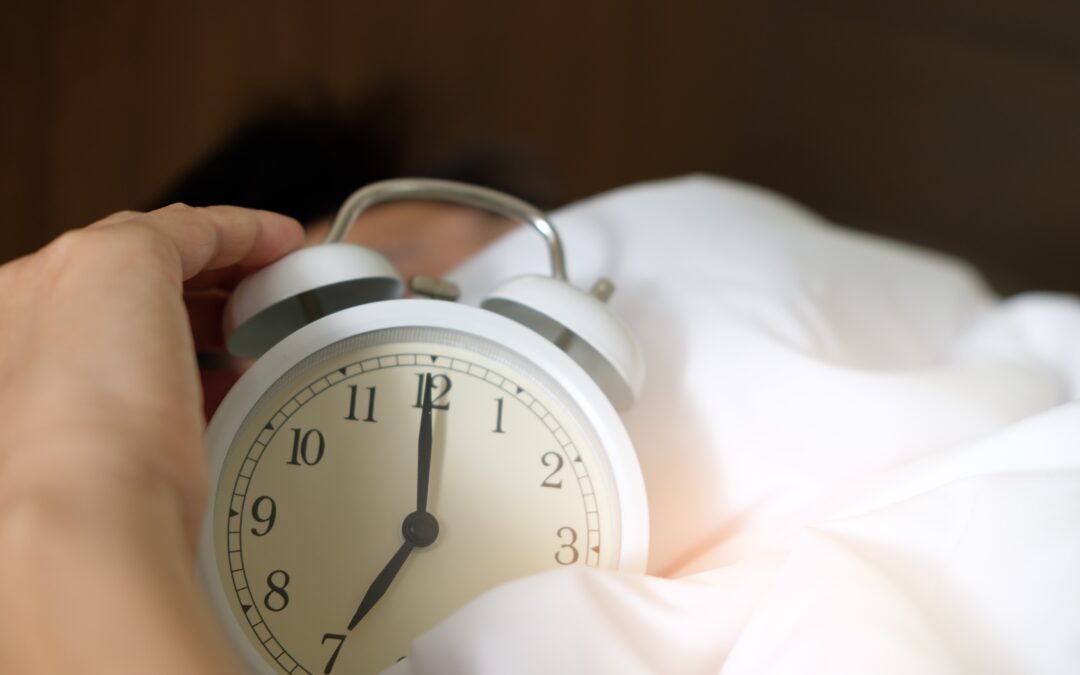Turning the clock forward or back for Daylight Saving Time will be disruptive to our body clocks. Losing an hour in the spring can leave you feeling tired and groggy for at least a week or two, while the extra hour in the fall may feel like a luxury, but can also be disruptive to your natural body clock.
Not to mention the changes in the morning light and evening darkness that coincide with the time change will also play a role. Follow these tips to get through time change sleep disruption so that when morning comes you’re ready to face the day.
We know sleep is important, and the change is hard but here is proof if you need it of how important sleep truly is:
Daylight Savings Sleep Statistic
“Data from the largest study of its kind in the U.S. reveal a 25 percent jump in the number of heart attacks occurring the Monday after we “spring forward” compared to other Mondays during the year — a trend that remained even after accounting for seasonal variations in these events. … But the study showed the opposite effect is also true. Researchers found a 21 percent drop in the number of heart attacks on the Tuesday after returning to standard time in the fall when we gain an hour back.” Source
Know your Number
If you sleep fairly well then your bedtime is likely fairly consistent and you should know the perfect number of hours you need to feel your very best each day. This is a good place to start as we make the adjustment for the “Spring Forward.”
Spring Forward
Ease into it. Let’s say you are used to going to bed each night at 10:00 PM. However, now with the loss of one hour, 10:00 PM is going to feel like 11:00 PM for at least the first 5 days, and the problem is you don’t get to sleep in for an extra hour in the morning, so you will be losing one full hour of sleep.
-
-
To compensate for this, on the first night of the time change, go to bed just 30 minutes later than you normally would. This means you would need to be in bed by 9:30 (remembering that yesterday this would have been 10:30 pm) the first 3 days after the time change.
-
On the 4th-night push bedtime back to normal, which would be 10:00 pm.
-
Know that it’s going to take a few more days until you feel properly adjusted.
-
Get up at the same time in the A.M. For most of us, this is a must anyway because we have to get up by a certain time to deal with family or get ourselves ready for work.
-
You’ll feel tired, as your body clock is used to that extra 30 min, but by the end of the first week you should be back to waking up fairly refreshed and by the end of week two you should be naturally waking up at this time. Don’t forget to:
-
- Pay attention to the light changes in your room. If the sun is staying up later than usual, you’ll need to close the curtains and be cautious about your melatonin levels before bed by reducing light exposure or wearing blue-blocking glasses.
- Getting noon hour sun exposure to help anchor your circadian rhythm onto a consistent schedule, this promotes deep sleep and easy onset of sleep at bedtime.
- Try to get as much sleep as possible over this next week so you can compensate for the lost hour. Enjoy the longer days and more sunlight, spring is right around the corner.
If you have kids you can follow a similar suggestions:
-
- School Age Children – Split the difference with the old time and new time. If you have a child that does not nap and normally goes to bed around 7:00pm, you would put him to bed at 7:30pm on Sunday night, the first night of the time change. Do this for 3 nights, putting him to bed 30 minutes later than his normal time, then on the 4th night put him to bed at the normal time, 7:00pm or whatever is normal bedtime for your child.
- Toddlers & Pre School Age – If you have a child age one and older, on Sunday, the first day of the time change, you would put him for his first nap 30 minutes later than normal. So if he naps at 9:30am usually, you would put him down at 10:00am. You would do the same with the afternoon nap if he takes an afternoon nap. For bedtime, if his normal bedtime is 7:00pm, you would put him down at 7:30pm. Do this for 3 nights after the time change and then on the 4th night, put him to bed at 7:00pm and on 5th day move naptimes back to normal time. So if your child naps at 9:30am, put him down at 9:30am and so on with the rest of the day.
- Infants – If you have a baby and his bedtime has become predictable (usually over 6 months old) meaning he is always going to bed around the same time each night. Eg. if bedtime is normally 7:00pm move bedtime 15 minutes earlier each night until you reach the new normal time. So the first few nights you would put him down at 7:45pm, the second set of nights 7:30pm, and so on. Within a week or so you should be back to 7:00pm. If their bed is not predictable (0-6 months old) simply jump to the new time Sunday night as if you were traveling to a new time zone.
As always, if you have any questions please reach out.
Sleep well,
Brooke
Bedtime Beginnings is a team of Pediatric & Adult Sleep Consultants from Southwestern Ontario, Canada. We help exhausted parents teach their infants & toddlers to sleep well every night with gentle, customized solutions and both group and private coaching options, so your family can all be at their best. Our team can support families in home and also virtually around the globe to ensure everyone is sleeping their best.
Follow us on Instagram for more tips to help you and your family get back to sleeping well each night, you deserve it.
If you haven’t been sleeping well please reach out for a friendly no-obligation phone call to help you and your family get back the rest you deserve.

